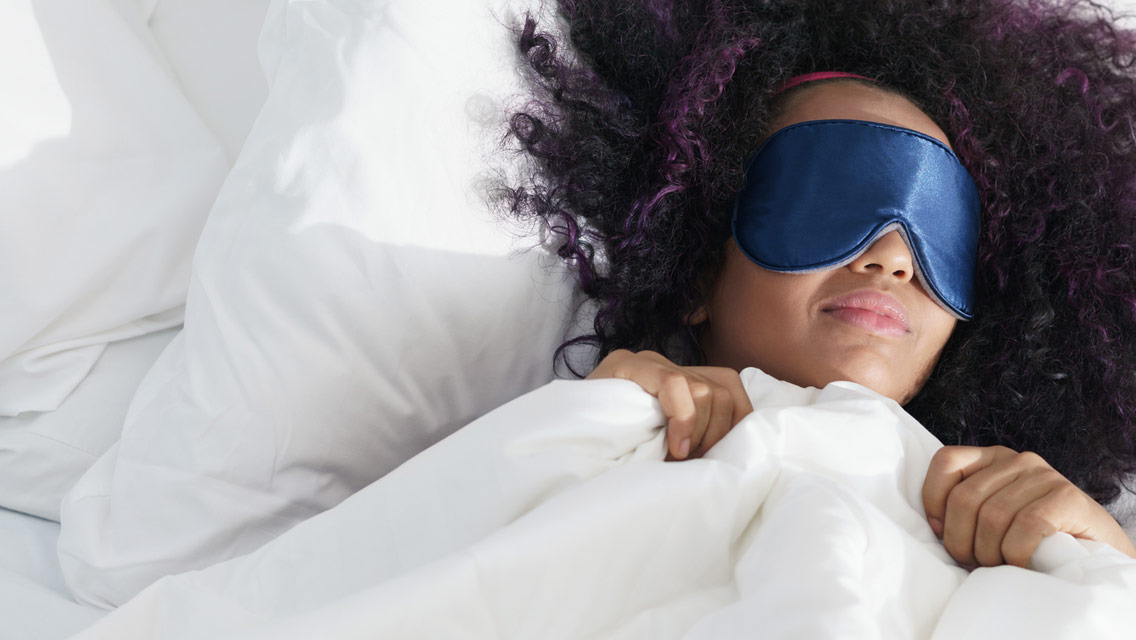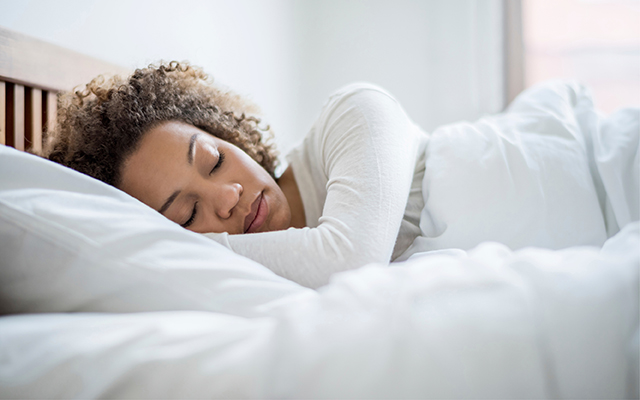1. Keep a Regular Schedule
Try to go to bed and get up at around the same time every day. This might mean going to bed earlier than you’re used to on weekends to get a full night’s sleep, because even if you stay up late it’s often difficult to sleep past your regular wake-up time. “Some people aren’t getting enough sleep simply because they don’t spend enough time in bed,” says Kristen Knutson, PhD, an assistant professor of medicine who’s conducted several sleep studies at the University of Chicago. “If you’re only spending four or five hours in bed, you’re only going to get four or five hours of sleep.”
2. Avoid Eating Large Meals Close to Bedtime
A large or heavy meal eaten within three hours of bedtime can cause bloating and discomfort, and the subsequent digestive activity can interfere with sleep. Also, lying down with a full stomach can trigger gastroesophageal reflux disease (GERD), in which stomach acid or bile backs into the esophagus and briefly wakes you up. “You may not even be aware of it, but it interferes with your quality of sleep,” says Phyllis Zee, MD, PhD, professor of neurology and director of Northwestern’s Sleep Disorders Center.
3. Make Your Bedroom a Sanctuary
A quiet, serene environment supports relaxation. So strive to eliminate clutter and chaos from your sleeping quarters. Avoid watching late-night news in bed or falling asleep with the TV on, both of which can negatively influence your sleep. Also avoid any kind of backlit reading, as studies show it can affect melatonin and disrupt sleep. Do the same for your children, says Susan Redline, MD, MPH, of Brigham and Women’s Hospital at Harvard Medical School, who has shown an association between sleep loss and increased appetite and weight gain in children.
4. Cut Back on Alcohol
Alcoholic drinks can make you feel drowsy, but once you fall asleep, having alcohol in your bloodstream can result in a more fragmented sleep pattern. It can also undermine sleep quality by relaxing the muscles in the upper airway, making snoring and sleep apnea worse. In general, relying on alcohol to help you sleep is not the best strategy. Instead, try winding down with a cup of herbal tea before bedtime. Chamomile, lemon balm, spearmint, valerian, catnip leaf and sage are all good choices if you’re looking for a gentle sleep aid.
5. Dim the Lights
Our biological clock can misinterpret electric light — especially the blue rays that stream from televisions and computer monitors — as daylight, making it hard for us to fall asleep if we keep up the glare until bedtime. To make your bedroom even more restful, remove or place a covering over backlit digital clocks and electrical equipment with glowing indicators. (For more on how overexposure to electric light can adversely affect your health, see “Light Rhythms”.)
This was excerpted from “How Does Sleep Influence Weight Gain?” which was published in the December 2010 issue of Experience Life.




This Post Has 0 Comments